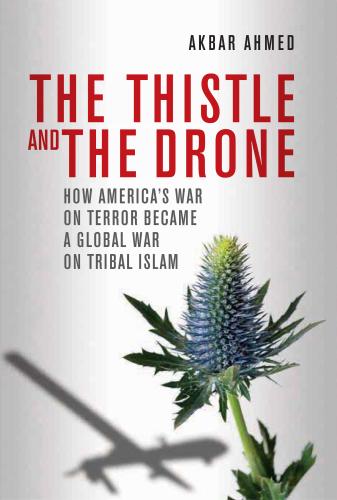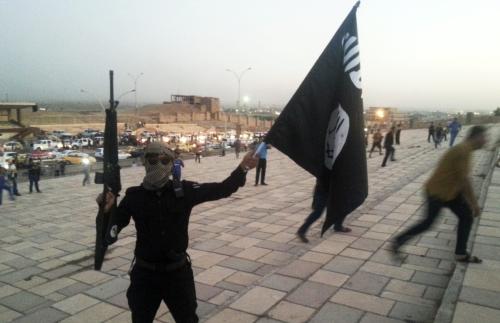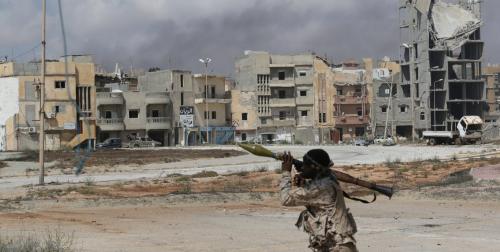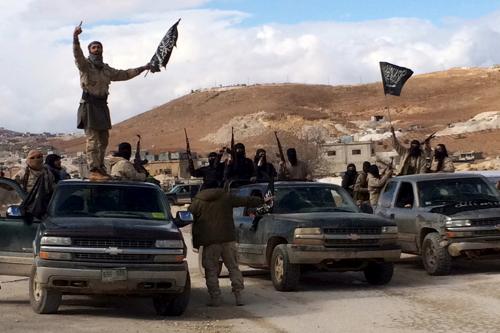Even if the Islamic State isn’t revived, writes Dan Byman—although it might be—the Middle East as a whole is likely to remain broken. The region will still suffer massive civil wars, jihadist terrorism, a lack of regime legitimacy, economic weakness, and constant meddling by neighboring powers. This piece originally appeared on Lawfare.
The collapse of the Islamic State’s caliphate and the military campaign that drove the group underground is a win for the Trump administration, the United States and the world as a whole. Even by the standards of terrorist groups, the Islamic State is bloody, extreme and toxic. However, even if the Islamic State isn’t revived—although it might be—the Middle East as a whole is likely to remain broken. The region will still suffer massive civil wars, jihadist terrorism, a lack of regime legitimacy, economic weakness, and constant meddling by neighboring powers. Moreover, the Islamic State’s defeat may make several problems worse, or at least more complex.
Let’s start with some good news. Should peace negotiations in the Syrian civil war start to gain traction, the destruction of the Islamic State removes, or at least weakens, an important “spoiler”—the group would have opposed any negotiated peace and would have fought against any actor, including other Islamists, who would consider negotiations. Negotiations, however, have a sad history in the Syrian conflict, and the Assad regime, along with its Russian and Iranian backers, appears bent on winning rather than willing to accept some sort of deal.
Before the Islamic State declared a caliphate in 2014—and otherwise electrified the broader jihadist movement—terrorist groups ran amok in the Middle East, and they persist despite the Islamic State’s decline several years later. Al-Qaida in the Arabian Peninsula plagues Yemen, al-Qaida in the Islamic Maghreb is a force in Algeria and neighboring states, Hay’at Tahrir al-Sham is deeply embedded within the Syrian opposition, and a host of smaller groups operate in these and other countries. Some serious analysts argue that al-Qaida has used the Islamic State’s ascendance to quietly rebuild and now poses a serious threat.
The fall of the Islamic State will likely aid these groups as would-be Islamic State recruits and funders will support others. In addition, the Islamic State often acted as a divisive force within the jihadist movement, fighting as much with rival groups as against the governments it ostensibly opposed. Its collapse may strengthen unity within the overall jihadist movement and allow these groups to divert attention to new targets.
 However, no group would likely assume overall leadership of the jihadist movement, and none would match the appeal of the Islamic State. The al-Qaida core led by Ayman al-Zawahiri has been operationally inert for several years, its leadership decimated by drone strikes and arrests. In response, al-Qaida delegated more authority to its regional branches, hurting its global image when they killed Muslim civilians or otherwise discredited the cause. Many regional groups endorse at least part of what al-Qaida embraces, but their regionalism limits their broader appeal: Al-Qaida in the Arabian Peninsula, for example, will not inspire Maghrebis, while the more limited horizons of these groups are unlikely to attract the hordes of Europeans, central Asians, and others who flooded to the Islamic State’s ranks during the 2013–2016 period.
However, no group would likely assume overall leadership of the jihadist movement, and none would match the appeal of the Islamic State. The al-Qaida core led by Ayman al-Zawahiri has been operationally inert for several years, its leadership decimated by drone strikes and arrests. In response, al-Qaida delegated more authority to its regional branches, hurting its global image when they killed Muslim civilians or otherwise discredited the cause. Many regional groups endorse at least part of what al-Qaida embraces, but their regionalism limits their broader appeal: Al-Qaida in the Arabian Peninsula, for example, will not inspire Maghrebis, while the more limited horizons of these groups are unlikely to attract the hordes of Europeans, central Asians, and others who flooded to the Islamic State’s ranks during the 2013–2016 period.
From the U.S. perspective, these shifts represent positive developments: The jihadist groups will weaken and focus more locally and regionally. However, the groups will not disappear, and some may become stronger.
Regimes in the Arab world suffer from a deep legitimacy crisis. With the exception of Tunisia, no government maintains even a hint of a popular mandate. In the past, regimes in the region gained at least some legitimacy from their revolutionary legacies and social and economic growth. These sources have dried up. The anti-colonial struggles are a distant memory for even older citizens of the Middle East. Rather, such “republican” regimes are military dictatorships with only a hint of representative window dressing. Arab monarchies enjoy slightly greater legitimacy from their traditions and more obvious succession mechanisms. However, much of their survival depended on their successful transformation of their societies due to oil wealth, foreign support, or other forms of “rents” that enabled them to greatly improve the lives of their citizens. In the last fifty years, life expectancy in Saudi Arabia increased from nearly 46 years to 75 years, and primary school completion rates increased by 172 percent from 1979 to 2015. However, a generation has emerged accustomed to some degree of wealth and social services, and indeed they enjoy fewer opportunities than their parents who grew up when oil price surges could be spent on a smaller population. The governments all perform poorly in bolstering economic growth and providing services, further decreasing their legitimacy. This lack of legitimacy led to the “Arab Spring” in 2011, the revolutions’ rapid spread, and the civil wars that often followed.
The collapse of the Islamic State may highlight and even exacerbate the legitimacy deficit. Area regimes have pointed to civil wars and the Islamic State’s excesses as proof of the danger of revolution and even reform. With this threat diminished, area regimes will have fewer excuses for their own failures.
Perhaps the biggest change in the region would be a further U.S. withdrawal from the Middle East. The threat of Islamic State terrorism motivated the Obama administration, which was eager to avoid the Middle East quagmire, to intervene militarily and engage in high-level diplomacy. The threat also motivated the Trump administration to continue those efforts. Even then, both administrations tried to keep their distance from the region, rejecting calls for larger interventions or sustained diplomatic efforts to end the wars. The collapse of the Islamic State diminishes the rationale for the U.S. military presence particularly in Syria but also in Iraq. President Trump also seems opposed to a massive intervention in Syria, perhaps because it would hurt the U.S. relationship with Moscow.
Even if opportunities for peace arise in Yemen or Syria, or if a miracle happens and the Israeli-Palestinian conflict is again ripe for resolution, Washington is unlikely to seize the opportunity. The Trump administration’s focus on “American first” would suggest that negotiating political settlements no longer is a U.S. national interest. In addition, U.S. bureaucratic weakness will make it less likely to negotiate effectively. These weaknesses include the dismantling of the State Department, the refusal to nominate or appoint key positions through the agencies, and the Trump administration’s difficulty in coordinating policy across government. Washington would also be less likely to act as the negotiator to restrain regional allies from fighting each other or intervening in ways that exacerbate existing conflicts—a shift that U.S. policy toward the dispute between Qatar and its neighbors and regarding Turkey’s intervention in Syria suggests is already underway.
Many American leaders in both political parties would see little reason to increase or even sustain U.S. involvement in the Middle East.
Instead, the absence of perceived threats allows other parts of the world—or problems at home—to take precedence. Whether this is the rise of China, a more aggressive Russia, or simply a desire to keep American forces and dollars out of a perennial trouble spot, many American leaders in both political parties would see little reason to increase or even sustain U.S. involvement in the Middle East.
Although the enduring collapse of the Islamic State is a step forward, the Middle East’s troubles run deep, and new dangers will likely emerge or worsen. From an American point of view, much depends on defining U.S. interests. Washington would have a greater ability to wash its hands of a troubled region, but such a move may increase the region’s many tribulations.










Commentary
The Middle East after the defeat of the Islamic State
March 28, 2018